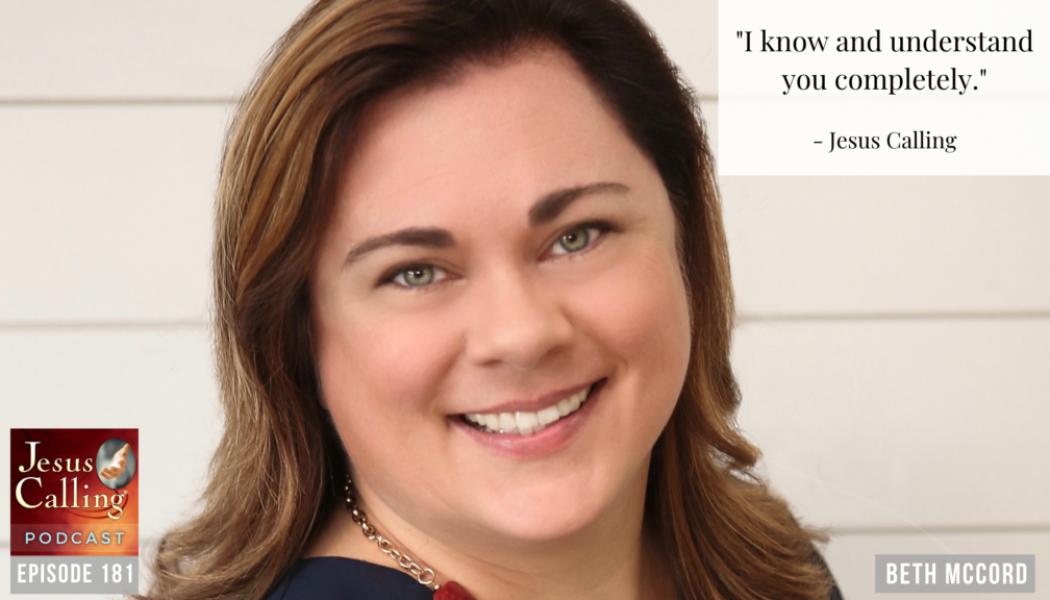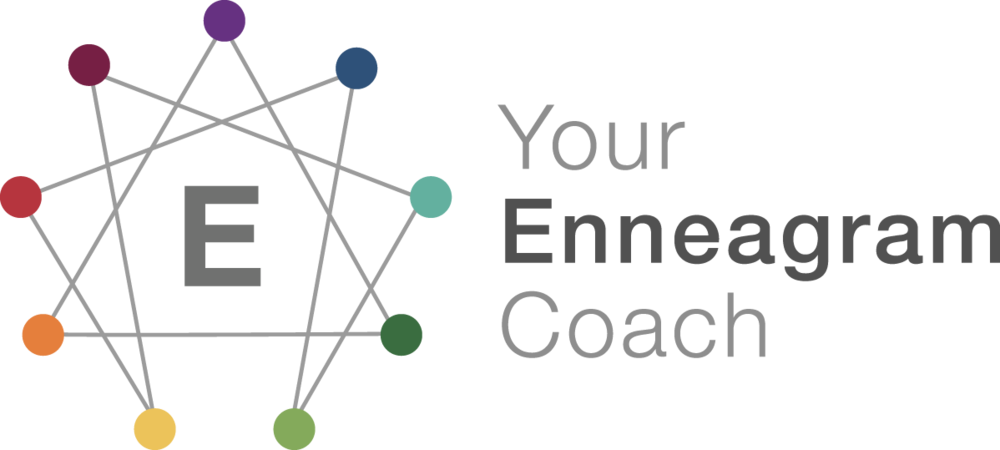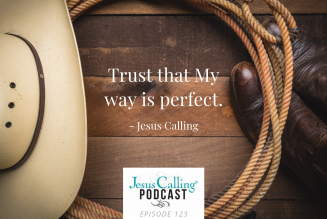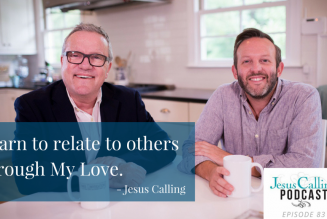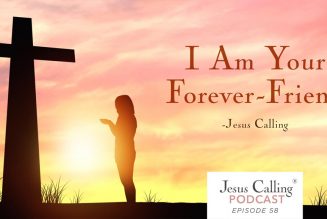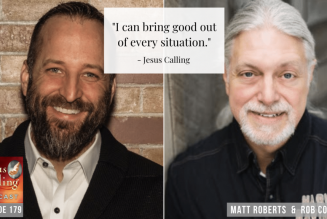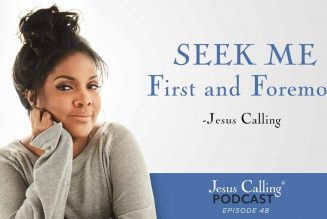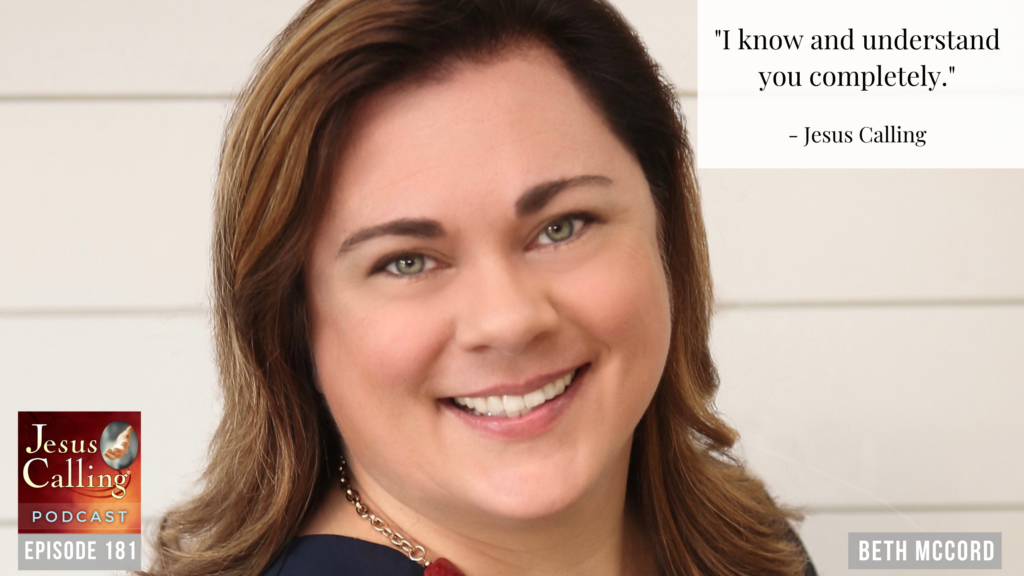
Beth McCord: So often we go with what our personality is telling us, the less healthy parts, instead of believing the truth, which is usually harder to follow. But when we trust Him, He will give us the strength to follow the healthier path for each of our personality types.
Who Are We Really? Beth McCord & Esther Fleece Allen Show Us God Knows – Episode #181
Narrator: Welcome to the Jesus Calling Podcast. This week’s guests share the blessings of getting to know ourselves and who God created us to be—Enneagram coach Beth McCord and author Esther Fleece Allen.
First up, Beth McCord is passionate about helping others find meaningful relationships and a life of deep purpose using a tool called the Enneagram, a system of personality typing that describes the different ways people view the world and manage their emotions. Today Beth tells us how understanding her own personality helped her understand herself and enhanced her relationship with her husband, Jeff, early in their marriage.
The Enneagram: Learning Why We Do What We Do
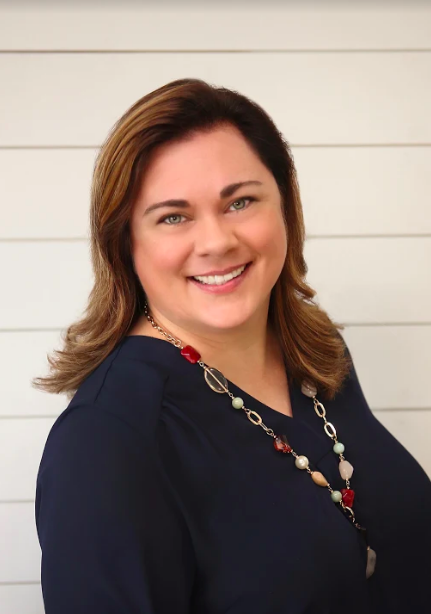
Beth: Hey, everyone, I am Beth McCord and I am Your Enneagram Coach and the author of Becoming Us and the new books that are being released called The Enneagram Collection, [which are] nine gift journals for all nine [Enneagram] types. I’ve been married to Jeff for twenty-four years, and we have two kids that are nineteen and twenty-one years old. We live just outside of Nashville, Tennessee.
There’s probably a lot of you out there like, “The Ennea-what? What is the Enneagram?” That is a great question. Enneagram is a Greek word. Ennea means nine, and gram means diagram. When you see the symbol, it’s a nine-pointed star, and the nine points represent nine basic personality types, or nine valid ways of seeing the world. Think of it as sunglasses; there are nine different colored sunglasses, and each of the types wears a different color.
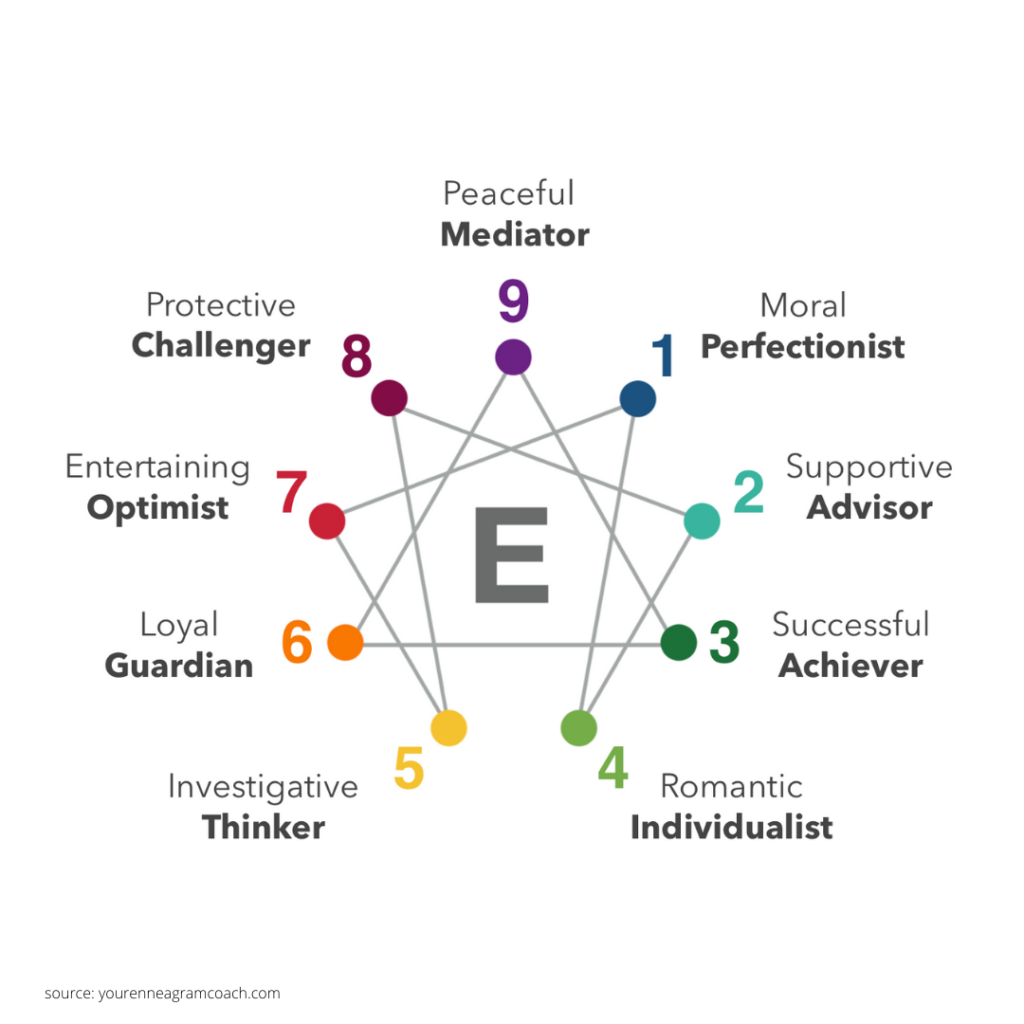
The Enneagram helps us to see the nine valid perspectives, and in a nutshell, the Enneagram is your internal G.P.S. The Enneagram will show you why you think, feel, and behave in very particular ways. It’s all about the why [you do] what you do.
Now, this is really important, because most of us think that we all see the world the same way, and that’s where we get kind of frustrated, irritated, or hurt when others do things differently, because we wouldn’t have done it that way. What happens is we assume, incorrectly, other people’s thoughts, feelings, and motives, because we’re basing it off of how we see it.
When we’re wrong, we can hurt, damage, and destroy relationships. But if we learn why people do what they do, we can have more empathy, understanding, grace, mercy, compassion, and love in ways that really reflect the heart of Christ. This will bring true reconciliation, peace, and harmony that God so desires for each of us.
“If we learn why people do what they do, we can have more empathy, understanding, grace, mercy, compassion, and love in ways that really reflect the heart of Christ.” – Beth McCord
Understanding Why God Made Us This Way
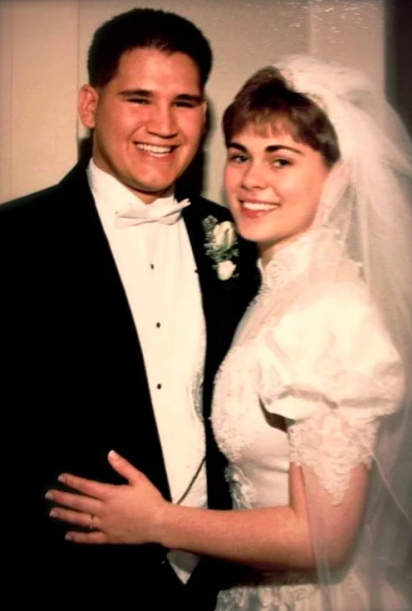
When I was about twenty-five years old, Jeff and I had already been married for about five years, and we were at a place where we were feeling at our wits’ end. I don’t know if anyone else feels like that sometimes, but we kept seeing ourselves fall into the same ruts, time and time again, wondering, Why do we do what we do? Like, Why are we not understanding this or each other? And that was when some friends of ours—while Jeff was attending seminary—introduced us to the Enneagram.
When I first started using the Enneagram, it was so helpful. One of the main reasons for me— and I think for most people—as a Type Nine, I’m the peaceful mediator. Type Nines live with an internal fog, and at times, it is like split pea soup fog. What I mean by that is Type Nines want peace and harmony, and in order to get that, we try to go along, to get along, and in doing so, we forget ourselves because we’re trying to merge with everyone else, or accommodate to everyone else. We lose our own passions and desires and abilities just to do what everyone else wants, just to make everyone happy. Well, that was really hard for me. If someone were to say, “What do you wanna do?” I’m like, “I don’t know. What do you want to do?”
“God created us all differently, and each of the personality types have a beautiful way that we reflect in it.” – Beth McCord
The Enneagram gave me clarity that I was doing this not as a way to punish myself, or think less of myself, but to see more clearly my weaknesses, but then to also come to Him and ask Him to help me in that weakness, to become more like Him. When I am weak, He is strong.
Growth is never easy, but what happened was that He started to give me clarity of my own passions and desires.
I developed Your Enneagram Coach, where I help people understand why they do what they do, and to spur them into becoming more like Christ in the way He designed them. So maybe I knew that deep down, but I didn’t know that that was my calling or that I should have done it.
So often my heart wants to do it myself, to figure it out myself, to pull myself up by my bootstraps. But only Christ can fix me. Only Christ can love me. Only Christ has everything accomplished for me. And so in this time of reflection, through the word, through reading resources like Jesus Calling, it aligns my heart back with what is true.
“So often my heart wants to do it myself, to figure it out myself, to pull myself up by my bootstraps. But only Christ can fix me. Only Christ can love me. Only Christ has everything accomplished for me.” – Beth McCord
One of the resources that I’ve really enjoyed is March seventeenth’s Jesus Calling entry, and it says:
Come to Me for understanding since I know you far better than you know yourself. I comprehend you in all your complexity; no detail of your life is hidden from Me. I view you through eyes of grace, so don’t be afraid of My intimate awareness. Allow the Light of My healing Presence to shine into the deepest recesses of your being—cleansing, healing, refreshing, and renewing you. Trust Me enough to accept the full forgiveness that I offer you continually. This great gift, which cost Me My Life, is yours for all eternity. Forgiveness is at the very core of My abiding Presence. I will never leave you or forsake you. When no one else seems to understand you, simply draw closer to Me. Rejoice in the One who understands you completely and loves you perfectly. As I fill you with My Love, you become a reservoir of love, overflowing into the lives of other people.
I just love that we really can never know ourselves as deeply and intimately as He does. This is a great entry that [says] it’s okay to look at all of us, the good aspects, and how we reflect God and His glorious grace, but also where we falter, because He’s got us all the way.
Applying the Enneagram Ideas to Relationships
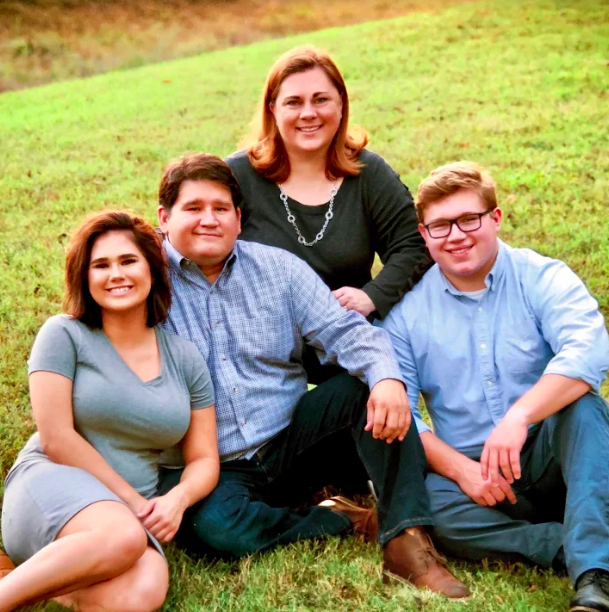
When you’re trying to find your type with the Enneagram, you want to look at the core motivations. What is your core fear? Your core desire? What is the core weakness that trips you up? The core longing that your heart always longs to hear?
Let me share it with you guys. An example of how to use the Enneagram in your marriage, and how it’s really affected Jeff and I, Jeff is a Type Six, the loyal guardian, and Type Sixes have an inner committee in their mind that shows them all the scenarios, particularly worst case scenarios. And they want to prevent these things from happening.
So they’re thinking, Well, what about this? Did you plan for that? Well, what about that? Well, what about this? That’s always happening in their minds, they’re always trying to prevent the worst case scenarios. But they also fear being abandoned, not supported or guided, and not having security. Well, I’m a Type Nine, the peaceful mediator. I fear conflict and tension of any kind. I just want peace and harmony and stability, but I don’t know myself well and I merge with others. Here’s the thing. When Jeff and I struggle in our relationship, it’s usually based off of these core motivations.
He fears being abandoned and not supported. I fear conflict. So when there’s conflict or tension of any kind, I start to shut down and I want to leave, or I want to get out of the situation altogether. Well, what do you think that says to him as a Type Six? To him, it lands as abandonment, which is one of his core fears, and what happens is when he gets activated inside, he pursues me even more intensely so that we can work it out together, so that we’re okay. Well, his intensity only makes me feel like there’s more tension and more conflict, so I shut down even more, and that only creates more aggravation for him.
Once he realized that I saw it so differently, and that it did not mean his greatest fear, he was able to sit in our differences longer and ask clarifying questions. But also, I was able to intentionally say, “I’m feeling really uncomfortable right now. Could you give me some time to go process and think through what we’re talking about, so I can come back with more clarity and actually address it, instead of wanting to abandon and leave the situation?” And by giving each other that clarification and understanding and empathy and grace, it allowed those dynamics to become more beautiful, more rich, more fulfilling.
You can do this with any of the nine types that you are relating to at any given moment. That’s where rich, meaningful relationships come, when we focus on Christ and allow Him to transform us.
The Enneagram Through A Spiritual Lens
Because of the transformational process we had with [the Enneagram], we started using it with others. We have nine gift books, one for each and every type. These gift books are journals and books all in one. I’m going to walk you through a twenty-one day series, learning about your type, specifically.
At the end of each day, there are reflection questions that can take your transformational process even further by going inward and thinking and processing how God is calling you to grow and transform into being more like Christ.
Think about the Enneagram being like an X-ray machine. It’s going to reveal what’s broken or not broken, but it cannot heal what’s broken, and that’s where the gospel comes in. When we see our weaknesses and frailties, isn’t it nice to rest in the finished work of Christ, knowing that He has everything completed and accomplished on our behalf?
Narrator: To learn more about Beth’s resources, including her Enneagram Collection gift books, visit her website at yourenneagreamcoach.com.
Stay tuned to Esther Fleece Allen’s story after a brief message about a way you can connect with other Jesus Calling readers each week in prayer.
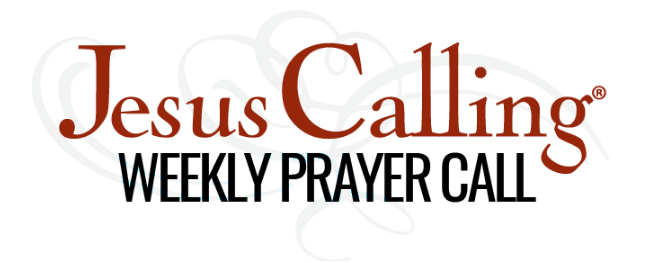
Did you know that Sarah Young, the author of Jesus Calling, prays for her readers each day? In that spirit, we want to extend the Jesus Calling prayer community out to you in a more personal way. Each Tuesday morning, you can dial in to the Jesus Calling Weekly Prayer Call, where the team from Jesus Calling and special guests will minister to us during a ten-minute call to reflect on that day’s passage from Jesus Calling, read scripture references, and pray together for each other and our world. Prayer call times are 8:00 a.m. Eastern, 7:00 a.m. Central, 6:00 a.m. Mountain, and 5:00 a.m. Pacific and are for U.S. only.
For more information on the Jesus Calling Weekly Prayer Call, or to submit prayer requests, please visit www.jesuscalling.com/prayer-call.
Narrator: Esther Fleece Allen knows the power of words, especially the power of a name. Like so many of us, Esther spent her life believing labels about herself that others gave to her—labels that were untrue because they were not given to her by the One who created her. Today Esther tells us how she discovered how to shed the names and old labels she used to define her and how her life has changed as she’s discovered who God really says she is.
The Names God Gives Us Are Sacred
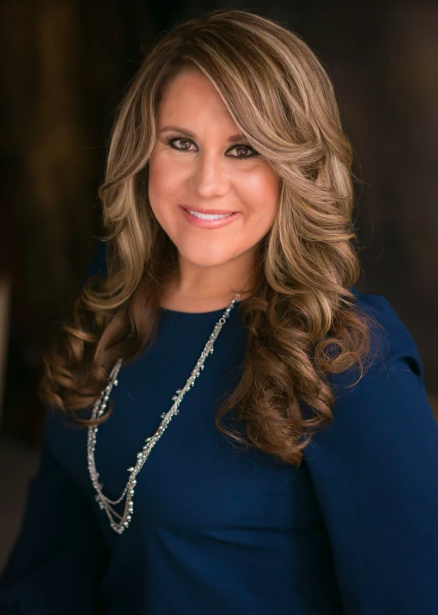
Esther Fleece Allen: Hi, I’m Esther Fleece Allen, author of No More Faking Fine, and my new book is called Your New Name.
I have had a lot of fun studying names in scripture, and there’s very few times that you ever see labels in the Bible, but something that is very sacred and important to God is names. He gives us power and authority to name others. Adam was even naming the animals. It says in Scripture that God even names the stars in the sky, and there is a deep transformation that happens in us when we begin to live out of the new name that God has given us.
“Something that is very sacred and important to God is names.” – Esther Fleece Allen
I became passionate, not only about studying the names of God, which are many, but also studying what the names are that He’s given to me as a Christ follower? Who does He say that I am and how can I begin to believe the new names He’s given me, apart from the labels that I’ve associated with for far too long? I think labels are external identifiers, they don’t really give justice to who we are in Christ. But a name change is deeply personal, and reflects the heart of God to the world.
“[I ask myself,] ‘Who does He say that I am and how can I begin to believe the new names He’s given me, apart from the labels that I’ve associated with for far too long?’” – Esther Fleece Allen
Let Go of the World’s Labels for You
There are very few times in scripture that the word label appears in the original language, it’s almost used as the word called, like somebody name called you something. And I know that even for myself, it’s really tempting to label others and put them in different groups that I disassociate with, I don’t relate to them. Labels really sell us short for knowing somebody at a personal level, at a deep level, and that is why God cares about naming.
I think many of us can think back to a time when somebody has mislabeled us, maybe called us overweight or unattractive or not dateable. Those things can stick with us for years. We are tempted to believe and to live out of labels, but many times labels lie.
When you believe those labels that lie, you can sometimes have a distorted view of God. Sometimes it’s even hard to hear the voice of God, so the Jesus Calling devotional really helped me to hear how God talks to me, that He talks to me in a loving way, that even when God corrects me, it’s out of His love for me.
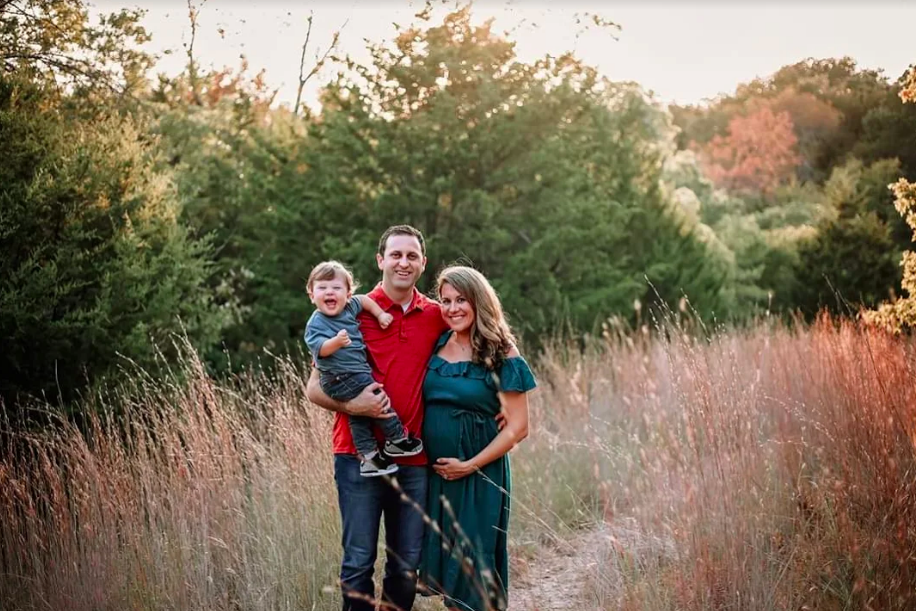
I began hearing the voice of God as tender and loving, and when I would read the words of the devotional, I would realize God does not speak to me in a condemning way like these labels are doing. God speaks to me in a new way, a language that I’m not even really familiar with, because we’re so used to criticism in this life. He speaks to me in a loving way, in an affirming way, and even His correction is done out of grace and out of love for me. This devotional was so huge for me in learning to listen to God and to hear and receive the good things that He says about me and the good things that He calls me to.
“God does not speak to me in a condemning way like these labels are doing. God speaks to me in a new way, a language that I’m not even really familiar with, because we’re so used to criticism in this life.” – Esther Fleece Allen
I want to read one of my favorite devotions from Jesus Calling. It comes from July twelfth, and it says:
Whenever you feel distant from Me, whisper My Name in loving trust. This simple prayer can restore your awareness of My Presence. My Name is constantly abused in the world, where people use it as a curse word. This verbal assault reaches all the way to heaven; every word is heard and recorded. When you trustingly whisper My Name, My aching ears are soothed. The grating rancor of the world’s blasphemies cannot compete with a trusting child’s utterance: “Jesus.” The power of My Name to bless both you and Me is beyond your understanding.
I love this devotion, because it speaks to the power of the name of God. And because we are made in God’s image, there is power in our name. When we bless the name of the Lord and we give Him praise that He deserves, not only does it bless Him, but we get blessed in return, because He changes our name in the process.
When God gives us a name, and calls us to live out our new name, we know that there is truth in that. We know that the change happens on the inside, it’s not just an external change. It’s deep. Name change is deeply personal and deeply meaningful.
“There’s power in a name. There’s power in what we name others, what we name future generations, and there’s power in the name we take on for ourselves, of who we’re going to become.” – Esther Fleece Allen
Narrator: Learn more about Esther’s latest book called Your New Name at her website, estherfleeceallen.com.
If you’d like to hear more stories about building connections with ourselves and others, check out our interview with author Margaret Feinberg.
Narrator: Next time on the Jesus Calling Podcast, we speak to army vet, country music artist, and former Bachelorette contestant Luke Pell. As Luke has been building a platform the past few years, he’s noticed that when he opens up and shares his personal struggles, that reaches people far more than anything else.
Luke Pell: If I’m sharing my vulnerabilities or my anxiety, if I share that on, say, social media, I get more response from people with those things than I do with anything else that I put out. For me, that’s becoming the overall foundation of what my story is and what my purpose is.
Narrator: Do you love hearing these stories of faith weekly from people like you whose lives have been changed by a closer walk with God? Then be sure to subscribe to the Jesus Calling: Stories of Faith Podcast on Apple Podcasts, Stitcher, or wherever you listen to your podcasts. If you like what you’re hearing, leave us a review so that we can reach others with these inspirational stories. And, you can also see these interviews on video as part of our original web series with a new interview premiering every other Sunday on Facebook Live. Find previously broadcasted interviews on our Youtube channel, on IGTV, or on jesuscalling.com/media/video.
